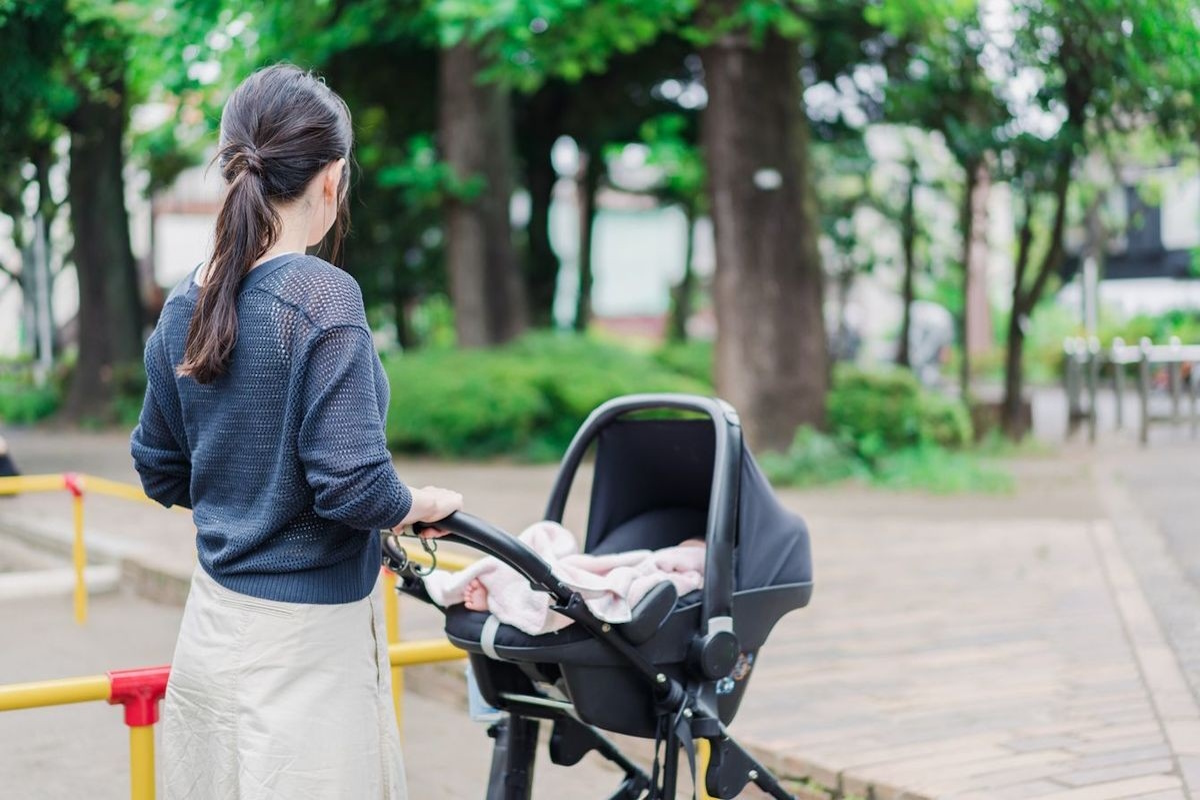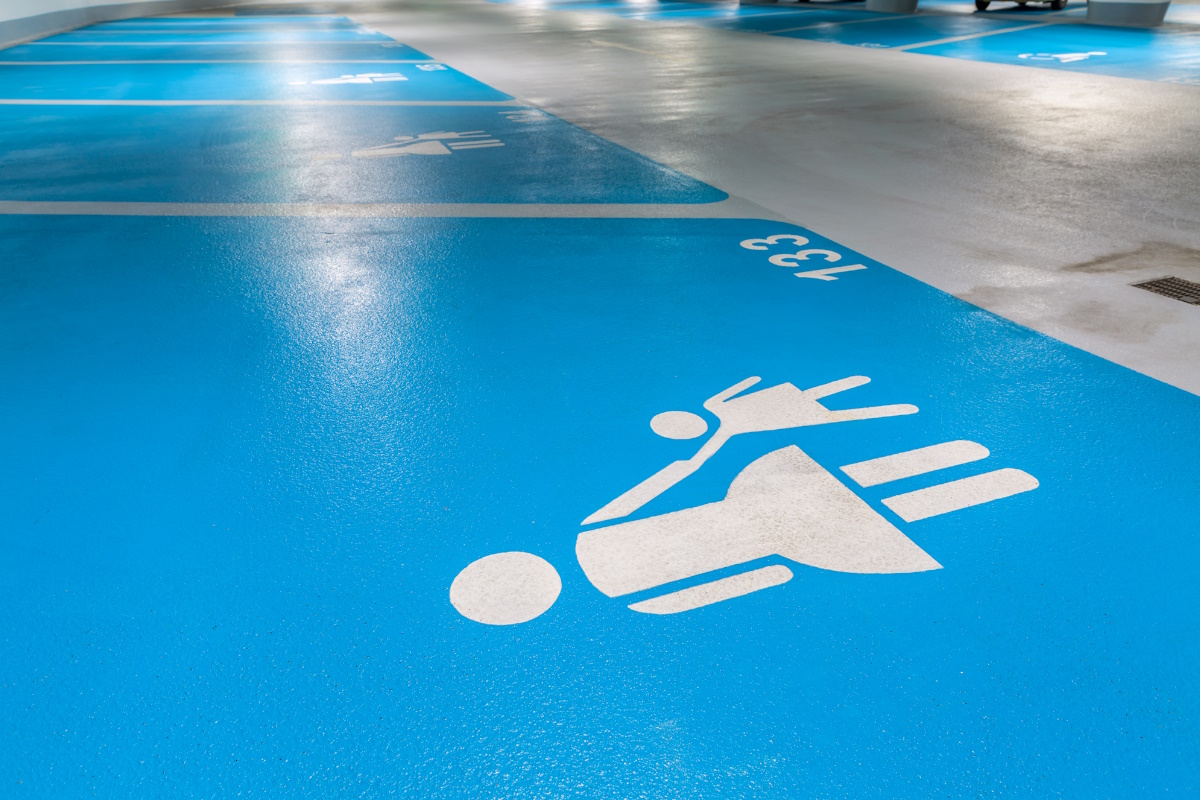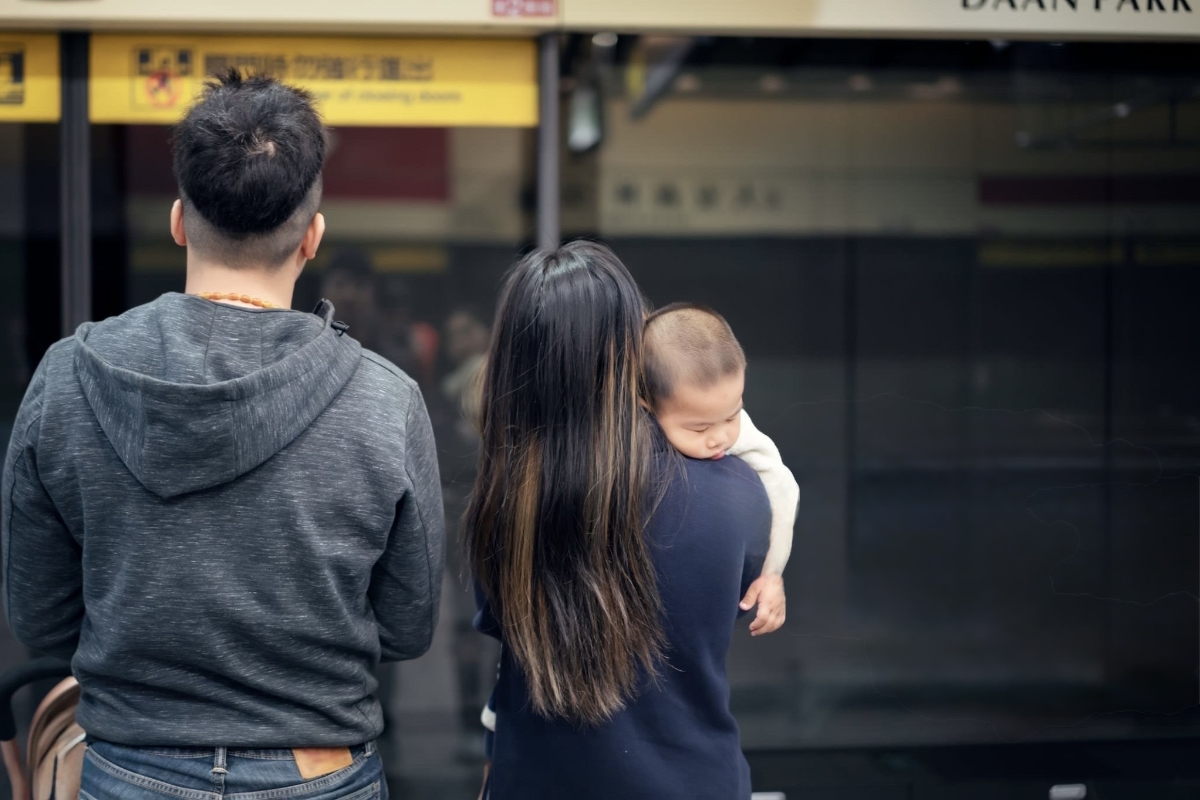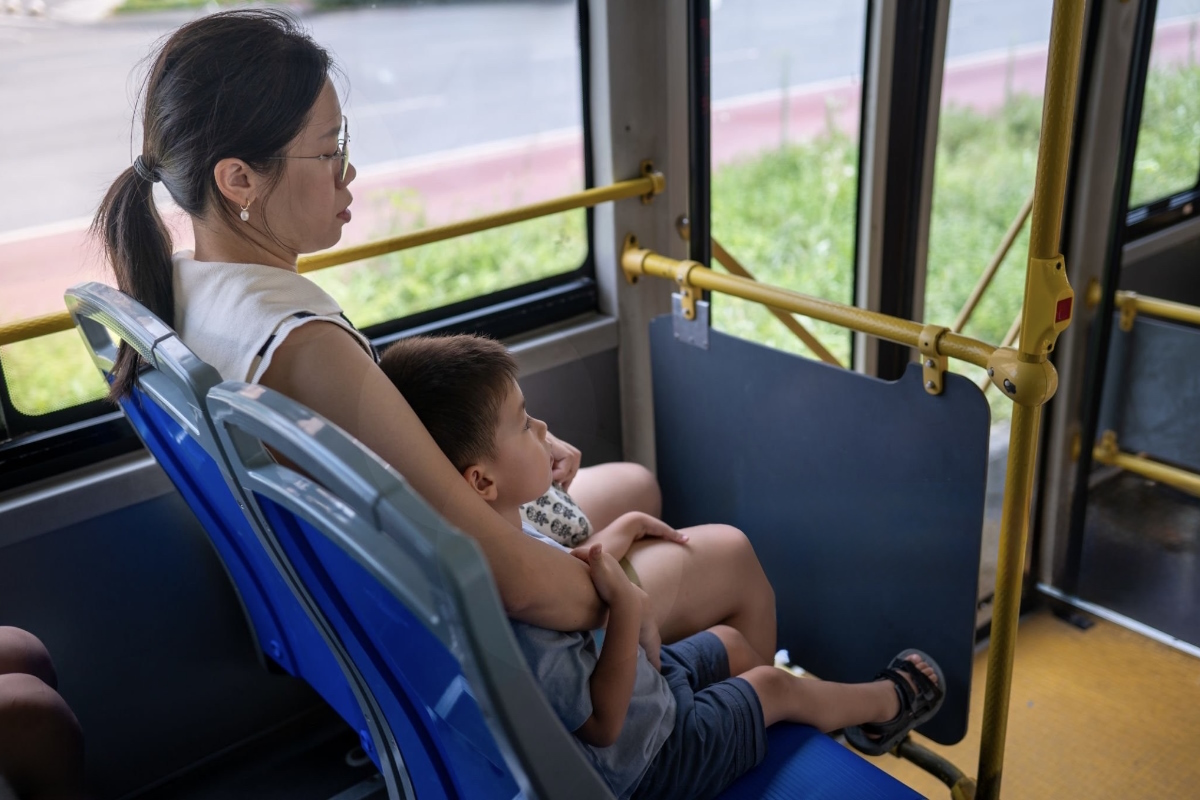
CWLF Survey: Public Spaces Remain Child-Unfriendly, 42.6% of Families Face Stigma
Taiwan has been facing a serious low birth rate crisis. However, instead of cherishing and nurturing the already dwindling number of children, society shows a trend of “aversion to children.” Child Welfare League Foundation (CWLF) conducted the 2024 Survey on the Parenting-Friendliness of Public Spaces for Families with Young Children in Taiwan [1], and the results revealed the stagnated progress in creating a parenting-friendly environment. CWLF urges the government and the general public to pay attention to the difficulties families with young children face in public spaces. By promoting a parenting-friendly atmosphere and improving public facilities, we can create a safer and more supportive environment for children to thrive.
[1] This survey was conducted from February 19th to March 10th, 2024, using an online questionnaire targeting parents across Taiwan with children aged 0 to 6 years. A total of 2,912 people responded to the questionnaire, with 2,840 valid responses. Among the valid samples, 11.5% were male, and 88.5% were female; 73.2% lived in the six special municipalities (Taipei City, New Taipei City, Taoyuan City, Taichung City, Tainan City, and Kaohsiung City), and 26.8% lived in other cities/counties.
Unfriendly Attitudes Like Indifference and Impatience Are the Biggest Sources of Stress for Families with Young Children
According to CWLF’s survey results, parents' subjective perception of friendliness when taking their children out scores only 46.8 out of 100. More than half of the parents feel stressed in public spaces (57.5%) and consider Taiwanese society unfriendly to infants and toddlers (56.3%). These two percentages are almost the same as those found in CWLF’s 2017 survey (57.4% and 57.3%, respectively) [2], indicating no improvement in the level of parenting-friendliness in Taiwan in the past 7 years despite the low birth rate crisis.
Parents' biggest source of stress in public spaces is the general public's attitude. The survey reveals that 42.6% of parents have experienced unfriendly responses to their children’s crying or loud-speaking voices. Among these parents, 39.8% experience rolled eyes or tutting sounds, 8.2% are scolded, 6% are asked to leave, and 2.1% are even photographed. These unfriendly behaviors not only increase the psychological burden on parents but also make parent-child interactions in public spaces more likely to become tense.
In addition, taking public transportation often causes distress for parents. The survey reveals some unfriendly behaviors on public transportation that make parents stressed, such as when no one offers to let the family use the elevator first (metro: 55.7%; train: 40.8%), no one yields their seat (metro: 44%; bus: 42.8%; train: 40.8%), or when people show impatience towards a crying child (metro: 30.2%; train: 36.6%). In general, the unfriendly attitudes in public spaces and public transportation make it more difficult for families with young children to go out. Inclusiveness for families with young children has a large room for improvement.
[2] Source: Child Welfare League Foundation (2017). 2017 Survey on Parenting-Friendly Atmosphere. https://www.children.org.tw/publication_research/research_report/2209

Going Out is a Challenge – Unsatisfying Road Facilities and Family Parking Spots
Taking children out is a challenge for parents, especially for those with infants or toddlers. The survey finds that 79% of parents use strollers, and they face many difficulties, including uneven road surfaces (87.2%), bumpy roads with potholes (85.2%), pedestrian arcades occupied by motorcycles or vendors (70.4%), overly narrow sidewalks (64.8%), road obstacles (58.4%), a lack of alternatives to underpass and footbridge (27%). Compared to the results of CWLF’s 2012 survey, the problems of bumpy roads with potholes (74.5%), uneven road surfaces (75.6%), and overly narrow sidewalks (56.6%) have persisted and, in fact, worsened. The road environment has shown no significant improvement over the past years, making it difficult for parents with strollers to get around.
Besides the stroller-unfriendly road facilities, finding suitable family parking spots is another challenge for parents. The 2015 amended version of the Protection of Children and Youths Welfare and Rights Act stipulates that 2% of public parking shall be reserved for pregnant women and drivers with children aged under 6. However, our survey shows that 92.8% of parents think the family parking spots are insufficient. They contend with various problems, including being unable to find a family parking spot (58.8%), family parking spots occupied by ineligible users (52.9%), overly narrow spaces for getting out of the car in family parking spots (33.8%), and unclear signage for family parking spots (13.7%). To meet the needs of families with young children to use strollers and family parking spots, it is crucial to improve relevant facilities.

Crowded and Inconvenient Public Transportation–Inadequate Parent-Child Carriages and Parenting-Friendly Facilities
The survey shows that most parents prefer to use cars (53.3%) and motorcycles (38%) when taking their children out. In comparison, the percentage of parents who use public transportation is low (bus: 12.2%, metro: 10.5%; train: 2.5%). According to parent ratings, metros perform better in terms of parenting-friendliness, followed by trains, while buses receive the lowest ratings. Overall, the facilities on public transportation are not parenting-friendly enough. Parents often encounter problems such as being unable to place strollers in the vehicle (metro: 37.9%; bus: 49.7%; train: 54.9%), difficulties getting in and out of the station (metro: 25.2%; train: 43.7%), a lack of family priority seats or relevant facilities (metro: 22.8%; bus: 50.3%; train: 46.5%), and difficulties for strollers to get onboard (metro: 22.8%; bus: 67.1%; train: 59.2%).
Parents rate buses lower in terms of parenting-friendliness, reflecting several issues that need to be addressed, such as vehicles starting to move before passengers are seated (74%), high chassis making boarding difficult (56.9%), overcrowding or excessive driving speed (46.2%), inconvenience in card swiping (37.6%), and drivers skipping stops or driving off before passengers can board (22%). For families with young children, taking a bus is neither safe nor convenient, which makes going out more stressful. Overall, crowded carriages, narrow entrances and exits, and the time pressure caused by quickly closing doors all increase the burden on families with young children on public transportation.
The Taipei Metro and Taiwan Railways introduced parent-child carriages in 2015 and 2017, respectively, aiming to provide a more convenient and comfortable travel environment for families with young children. However, our survey shows that parents’ experiences with parent-child carriages are dissatisfying. When asked about their experiences with parent-child carriages on the metro, parents report that other passengers do not yield to children (58.1%), that the carriage facilities are not different from regular carriages (42.9%), that there is a lack of family priority seats (22.6%), that the window stickers obstructed visibility (17.1%), and that their children are criticized for making noise (10.5%).
As for trains, the percentages of parents who know about and use parent-child carriages are relatively low. As many as 29.9% of parents are unaware that Taiwan Railways offers parent-child carriages, and only 17.1% have ever used this service. Regarding their traveling experiences with the parent-child carriages on the train, parents report several problems, such as difficulties getting a ticket due to limited quota (64.4%), carriages occupied by ineligible users (55.1%), insufficient seats (51%), and children being criticized for making noise (10.1%). These factors all make it inconvenient for families with young children to travel, reflecting a need to enhance the level of parenting-friendliness on public transportation.

CWLF’s Appeals to Create a Parenting-Friendly Environment that Ensures Safety and Convenience for Parents Going Out with Young Children
Going out with children is never easy. In addition to preparing diapers, formula, and other parenting supplies, parents also need to research and plan routes in advance instead of going out spontaneously and lightly. Even if parents are well-prepared, they still encounter stressful situations such as uneven road surfaces, inadequate public transportation facilities, and unfriendly attitudes of other passengers. To tackle these problems, CWLF is calling for action:
- The government should prioritize planning parenting-friendly travel spaces and amend laws to increase the number of family parking spots: The road design in Taiwan has long been car-centered and unfriendly to parents with strollers and young children. Our survey results indicate that problems such as bumpy roads with potholes and overly narrow sidewalks have remained unresolved and even worsened in the past 12 years. We urge the relevant authorities to strengthen road maintenance, widen sidewalks, and prioritize the planning of parenting-friendly walking spaces. We will also advocate for the amendment to Article 33-1 of the Protection of Children and Youths Welfare and Rights Act to increase the locations and number of family parking spaces, making traveling for families with young children safer and more convenient.
- Public transportation providers should strengthen the promotion of parent-child carriages and add more parenting-friendly facilities: Whether they are on metros, trains, or buses, parents face challenges such as difficulty boarding and disembarking, and a lack of parent-child facilities inside the carriages. We call on public transportation providers to strengthen the promotion of parent-child carriages and add more family-friendly facilities, including stroller parking spaces, family priority seats, accessible restrooms, and convenient boarding and disembarking routes, to reduce the travel burden on parents.
- The general public should show more empathy and tolerance, alleviating the pressure on families traveling with young children. When going out to public spaces, parents often bear huge stress caused by their children’s sudden crying or tantrums. Especially when passersby cast impatient looks or make critical remarks toward the family, parents may feel an even deeper sense of helplessness. Every adult was once a child who cried and threw tantrums. We hope that society can show more tolerance and understanding to parents and children and provide spaces and assistance when needed so that parents and children can feel more empathy and warmth.
CWLF urges everyone to care about the obstacles that families going out with young children encounter. Let’s create a more parenting-friendly and supportive environment where families can go out easily, safely, and happily.


